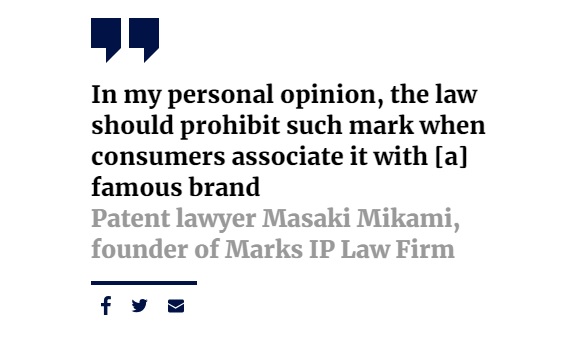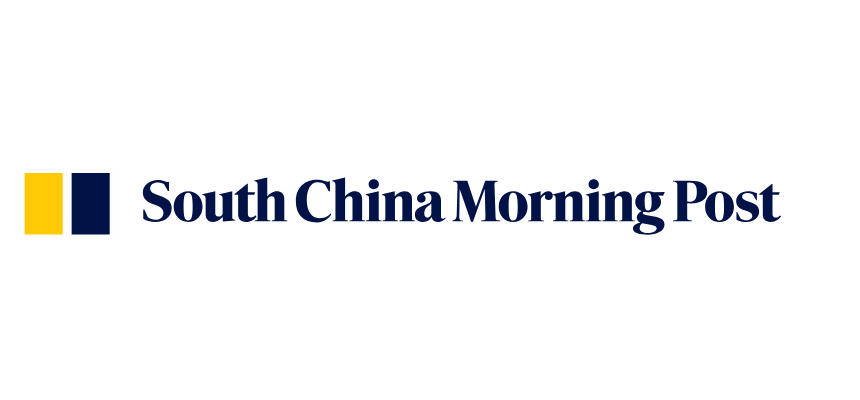[記事掲載日:2022年9月16日]
『South China Morning Post』が、マークス英語ブログ「JAPAN TRADEMARK REVIEW」で紹介した商標異議申立事件「GUCCI vs CUGGL」を取り上げ、マークス代表・三上弁理士が取材を受けた記事が掲載されました。記事全文は、こちら。
Italian fashion giant Gucci has lost a trademark lawsuit to a Japanese T-shirt manufacturer that has a track record of mimicking internationally renowned logos.
This is despite the specialist patent lawyer who won the case on behalf of Osaka-based clothing firm Parodys admitting he feels the present law needs work.
In July 2021, Gucci filed an opposition motion against Parodys, owned by one Nobuaki Kurokawa, after noting that he had trademarked the name “CUGGL” in October 2020. The trademark permitted Kurosawa to apply the name to clothing, belts, footwear and athletic clothing.
The letters CUGGL appeared in a similar font as those used in Florence-based Gucci’s logo and with similar spacing. However, Kurosawa’s firm used them with a thick, coloured stripe obscuring the bottom half of each letter.
The complaint filed by Gucci was that the stripe obscured parts of the letters that would have revealed them to read “CUGGL”, and that, given Gucci is an internationally famous brand – it was founded in 1922, has 500 directly managed stores around the world, including 97 in Japan – anyone seeing only the top halves of the letters would assume they made up the word Gucci.
In July, however, the Japan Patent Office ruled that the CUGGL trademark is “not likely to be confused with GUCCI”, nor that it might have “some economic or organisational relationship with the petitioner”.
Masaki Mikami, founder of Marks IP Law Firm, said he was confident that Kurokawa would win the case, despite him losing an earlier, similar patent case.
“It is unlikely that Japanese consumers would connect the term ‘CUGGL’ with ‘GUCCI’,” he said. “I do not think the ‘GUCCI’ logo has been used with a painted stripe. If so, then there is no reasonable likelihood of confusion.
“Besides, Mr Kurokawa does not promote T-shirts bearing the ‘CUGGL’ logo by taking advantage of GUCCI, as he advertises them as a parody.”
In addition, he said, the words do not have the same sound when spoken.
Under Japan’s trademark law, Mikami said, an image can only be prohibited when it causes confusion with a famous brand, so if a consumer does not believe that a product is a genuine product of a well-known brand, then it cannot be banned from sale.

Mikami adds that Parodys has not had it all its way in the courts. While it won a case brought by US-based athletics clothing brand Champion over items displaying the Champion logo’s distinctive “C” that had been inverted and superimposed with a cat’s face, it lost a similar case instigated by Lacoste.
The French sports and leisure-wear brand objected when Parodys began selling clothing bearing an image of an upside-down crocodile above the word Ocosite, in a similar font as that used by Lacoste.
Parodys has not replied to messages from the Post asking for comment.
A spokesman for Gucci in Tokyo declined to comment.
Mikami is of the belief that while the company does not have the right to appeal against the Japan Patent Office’s decision, it can file an invalidation action. He expects Gucci to make that move in the coming months.

